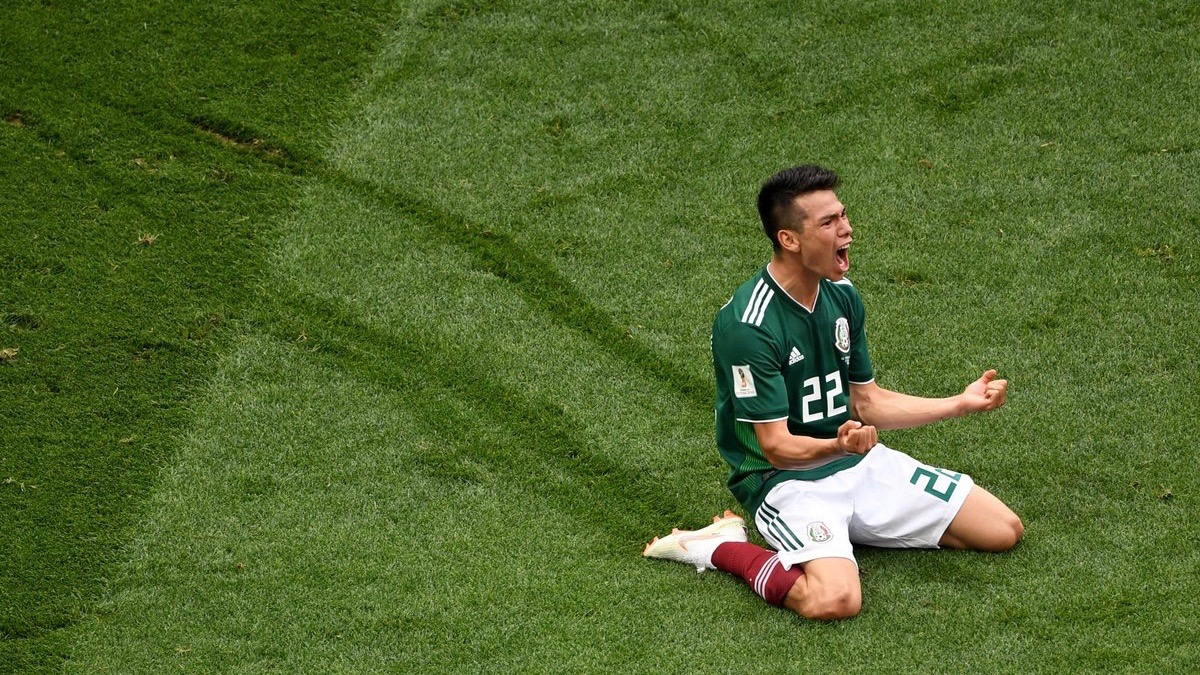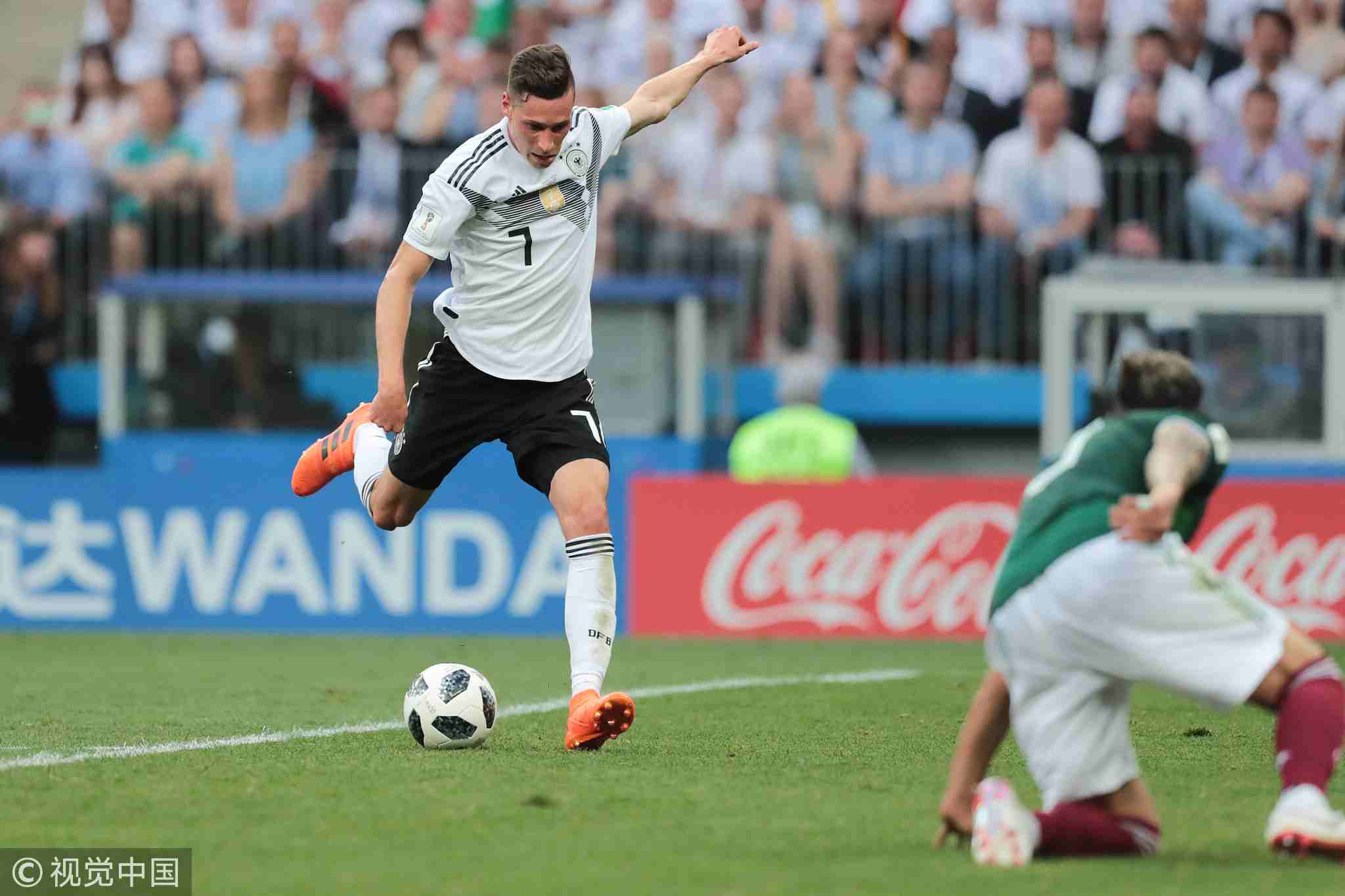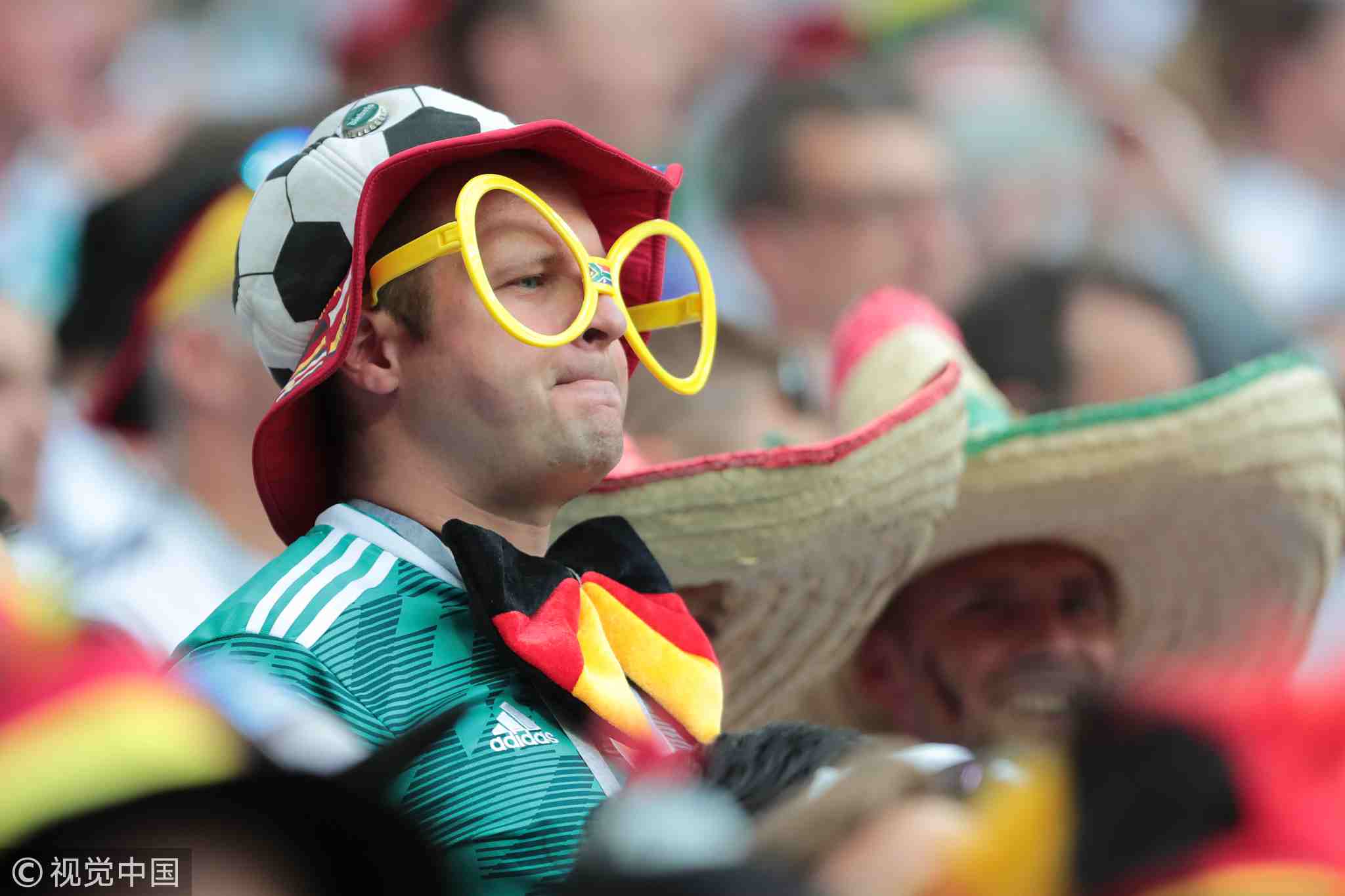
Sports
08:03, 18-Jun-2018
World Cup 2018: Germany take their first sip from the poison chalice
Josh McNally

Up until EA Sports jinxed the National Football League (NFL) with the Madden Curse, the realest and most deadly of all sports curses came from winning the World Cup.
Winning the tournament and becoming immortalized in football history must tip the cosmic scales too far in one particular country’s favor, and the rebalancing, when it arrives – as it always does – is often brutal.
Recently, Italy outplayed Germany in the finals of World Cup 2006 but ended World Cup 2010 at the bottom of Group F, unable to muster a win against Paraguay, Slovakia or New Zealand.
It was at that same tournament that Spain looked unbeatable, winning that World Cup at the peak of their International footballing dynasty, but in Brazil four years later, they were dumped out in the group stage after a 5-1 act of revenge from the Netherlands.

The midfielder Julian Draxler of German national team during a Group F 2018 FIFA World Cup soccer match between Germany and Mexico on June 16, 2018, at the Kazan Arena in Kazan, Russia. /VCG Photo
The midfielder Julian Draxler of German national team during a Group F 2018 FIFA World Cup soccer match between Germany and Mexico on June 16, 2018, at the Kazan Arena in Kazan, Russia. /VCG Photo
So it only makes sense that defending champions Germany lost their opening game 1-0 to a fired up Mexico side. If not for the curse, there’s no real explanation. Joachim Loew’s men are insanely well drilled, with formations so tightly locked down and passes so quick and direct that they often end up looking the like a real-life version of a team on FIFA. Many of their veterans may have retired after victory in Brazil – among the departed are Philipp Lahm, Bastian Schweinsteiger, and Per Mertersacker – but the system reigns supreme at Die Mannschaft and replacements were found quickly.
On paper, it looks like there are no real weaknesses besides for inexperience as the youngsters, such as Timo Werner, Leon Goretzka and Matthias Ginter, have all proved themselves as exceptional talents for their club teams in the Bundesliga. And yet, against Mexico, their greatest strength looked like their greatest weakness.
When you’re winning, a slavish devotion to a game plan manifests as efficiency and consistency, but when losing, it seems like predictability, and El Tri exploited that at every possible turn.
Utilizing a gamesmanship that included copious amounts of shirt pulling, obstruction and dropping to the ground amidst a foul and then claiming that they themselves were fouled by Mexican wrestling legend Eddie Guerrero, Mexico spent the bulk of the game frustrating Germany and then using whatever break they have to burst down the wings and get the ball to either Chicarito or Hirving Lozano.
It’s one thing not to react to the constant niggling fouls, but the pacy Mexican forwards repeatedly beat Germany’s back line to the punch, meaning that Lozano’s goal at the 35th minute felt strangely inevitable.
When the second half kicked off, it was expected that Germany would have made some kind of alterations. Instead, it was Mexico who ended up bluffing themselves and started sitting deep, waiting for a rejuvenation by the Germans that didn’t arrive. Every so often, Toni Kroos would find Julian Draxler or take a shot himself and demonstrate that there was potential in their attack, but for most of the second half, the game was defined by smooth German passing triangles roughly three quarters of the way around the pitch as they looked for, rather than forced, space to push through.

Fan of German national team before a Group F 2018 FIFA World Cup soccer match between Germany and Mexico on June 16, 2018, at the Kazan Arena in Kazan, Russia. /VCG Photo
Fan of German national team before a Group F 2018 FIFA World Cup soccer match between Germany and Mexico on June 16, 2018, at the Kazan Arena in Kazan, Russia. /VCG Photo
The team of 2014 that humiliated Brazil 7-1 on their home turf searched for the smallest cracks, and the smashed their way through, this German team instead seemed to be waiting for an invitation.
By the end, things started to feel desperate. All of Germany’s substitutions were attacking, leaving the team so imbalanced that Manuel Neuer, the Swiss army keeper, came to pad out the defense and still the only breakthrough came in their composure as Mats Hummels and Thomas Mueller racked up their first yellow cards, both for totally pointless incidents.
When the final whistle blew, Germany’s response was in line with the sluggishness that came before it.
Viewers who didn’t know it was the World Cup could readily have believed this was a team that had just lost a tune-up friendly rather than the first game of their title defense. On the other hand, however, Javier Hernandez was in floods of tears, and the rest of the squad were visibly emotional too. It’s an outsized response considering there are still two group games to go but at least it was a reaction suggests they know the importance of the event, something Germany seem to have forgotten.

SITEMAP
Copyright © 2018 CGTN. Beijing ICP prepared NO.16065310-3
Copyright © 2018 CGTN. Beijing ICP prepared NO.16065310-3